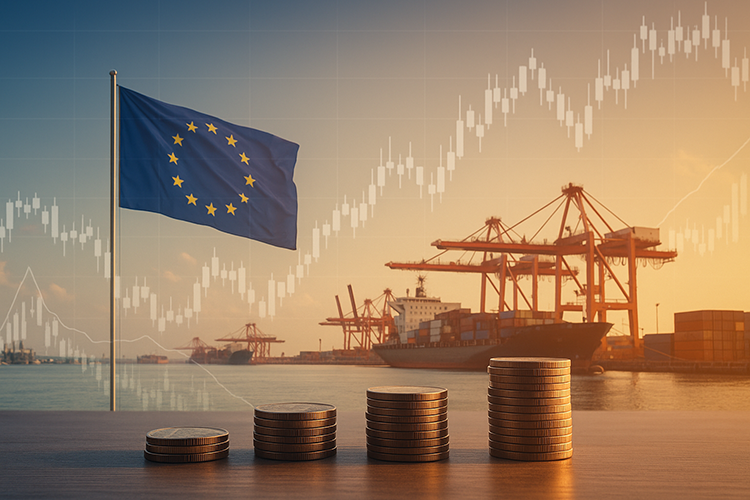2025-10-09
indicators

The initial phase of an agreement between Israel and Hamas, designed to halt the conflict and open the door to renewed peace efforts, has been met with cautious optimism across Europe. Both the European Union and the United Kingdom have underlined that any sustainable stability must lead back to a credible two-state framework. The development carries potential consequences for trade, investment, and economic confidence across the region. In Brussels, Berlin, Paris, and London, political leaders welcomed the announcement as a necessary first step in calming one of the world’s most persistent flashpoints. Markets responded modestly but positively. Oil prices slipped slightly as traders reduced the geopolitical risk premiums that have inflated energy costs over the past year. For Europe, which remains sensitive to swings in oil and gas prices, the easing of tensions could help moderate inflation and stabilise industrial operating costs. Analysts, however, remain cautious, warning that energy markets will only normalise if the ceasefire holds and production routes remain secure. In shipping and logistics, there is quiet hope that Red Sea trade routes could gradually reopen. Since late 2023, instability and maritime threats in the area have forced many shipping firms to divert cargo away from the Suez Canal, driving up delivery times and freight rates. A lasting reduction in hostilities would encourage insurers and carriers to review risk premiums and potentially return to traditional routes, improving supply chain efficiency. But major operators have said they will require months of consistent stability before restoring full passage, noting that risk models and maritime insurance assessments take time to adjust. European policymakers are linking economic support and humanitarian aid in Gaza to renewed diplomatic momentum toward a two-state settlement. EU officials have signalled that reconstruction financing, infrastructure partnerships, and investment guarantees will be closely tied to governance standards and verifiable security progress. Several member states are also debating whether coordinated recognition of Palestinian statehood could reinforce the political framework for long-term peace. The UK government, while echoing the EU’s stance, is focusing on using diplomatic and economic channels to promote regional stability and ensure the protection of commercial interests. For business and investors, the short-term economic implications are measured rather than dramatic. A period of calm could help lower energy and transport costs, providing relief for import-heavy industries across the continent. European construction, engineering, and consultancy firms are quietly preparing for potential contracts linked to reconstruction projects, though few expect tangible work before 2026. Tourism operators and airlines are also watching developments closely, anticipating that travel to the region could slowly rebound once security advisories are eased. In the financial sector, reduced geopolitical tension tends to improve investor sentiment toward European equities and currencies. A durable ceasefire would help restore confidence in global trade routes and reinforce perceptions of stability around the Mediterranean basin. Still, central banks and regulators remain focused on broader challenges such as inflation, energy transition risks, and global monetary tightening. The broader message from Brussels and London is one of cautious hope. European officials view the first phase of the ceasefire as an opportunity to re-engage diplomatically and to anchor the Middle East within a framework of reconstruction and economic cooperation. But they also acknowledge that the road ahead is uncertain, shaped by fragile domestic politics in Israel, the complex realities of Gaza’s governance, and the possibility of renewed violence. For now, the ceasefire has provided Europe with a brief reprieve from geopolitical tension and a reminder that stability in the energy and trade systems depends not only on supply chains and markets but also on the persistence of diplomacy.

